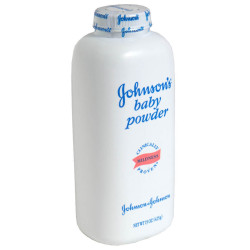Top Class Actions’s website and social media posts use affiliate links. If you make a purchase using such links, we may receive a commission, but it will not result in any additional charges to you. Please review our Affiliate Link Disclosure for more information.

J&J Pushes to Consolidate Baby Powder Lawsuits
On May 19, 2015, a letter of request from Johnson & Johnson argues that because 87 of the 103 talcum powder cancer lawsuits are pending in Atlantic County before Superior Court Judge Nelson C. Johnson, the rest of the cases should be consolidated to reduce litigation hassle and conserve legal resources.
Outside of Atlantic County, there are 16 baby powder cancer lawsuits that are currently assigned to eight different judges in Bergen County, which would make the litigation a bit more inconvenient. The defendant also states that consolidation would be an appropriate course of action because it would be highly convenient to both parties, as they would not have to divide themselves due to the geographical locations of the counties.
While Johnson & Johnson acknowledges that each plaintiff has their own medical history and allegations, each of the baby powder cancer lawsuits are highly similar in nature in demands for damages and charges. However, the company does dispute the “general causation of this litigation”, most recently refuting comprehensive recent studies relevant to the allegations made by the plaintiffs.
Essentially, Johnson & Johnson remains adamant that their talcum powder products do not induce ovarian cancer, and that even after decades of scientific inquiry, no definitive links have been proven.
The plaintiffs’ lawyers have been selectively filing cases in the different counties, indicating that new plaintiffs from New Jersey have now been added to the pile of baby powder cancer lawsuits. Glenn A. Grant, the acting administrative director of the court of New Jersey, states that anyone who objects to Johnson & Johnson’s proposal of consolidation should submit them by July 8, 2015. Some of the plaintiffs’ lawyers state that not only is the proposal reasonable but inevitable, as the baby powder cancer lawsuits are similar enough in allegations and damage claims.
Talcum Powder Ovarian Cancer Allegations
Many women in the United States are now aware that Johnson & Johnson’s talcum powder could possibly induce ovarian cancer. This has come as quite a shock to both the consumer population and medical community, as talcum powder has been used as a personal hygienic product for decades. The fact that it could impose a major health risk to women is almost inconceivable.
Unfortunately, the risk of ovarian cancer has been suspected since the 1970s, as scientists discovered a consistency between talcum powder users and ovarian cancer developments in 1971. Experts explain that when talc particles enter the woman’s fallopian tubes, they implant themselves in there for several years and then fester into cancer cells. This happens when the woman applies talcum powder to their genital area for hygiene purposes, which allows access to the bloodstream for the talc particles.
Obviously from its name, talc is the main ingredient of the products in question, which is a mineral containing magnesium and silicon mined in mineral rock form. These rocks were crushed, dried, and turned into fine powder that is then released into the market to be used for various hygiene purposes. Most popularly, talcum powder was used to reduce the friction in dry skin and to treat yeast infections.
For years, talcum powder products were flying off the shelves as easy fixes for personal health conditions. Now that this popular product may be causing ovarian cancer, women have become more reluctant to use it.
Do YOU have a legal claim? Fill out the form on this page now for a free, immediate, and confidential case evaluation. The attorneys who work with Top Class Actions will contact you if you qualify to let you know if an individual lawsuit or class action lawsuit is best for you. [In general, baby powder cancer lawsuits are filed individually by each plaintiff and are not class actions.] Hurry — statutes of limitations may apply.
ATTORNEY ADVERTISING
Top Class Actions is a Proud Member of the American Bar Association
LEGAL INFORMATION IS NOT LEGAL ADVICE
Top Class Actions Legal Statement
©2008 – 2024 Top Class Actions® LLC
Various Trademarks held by their respective owners
This website is not intended for viewing or usage by European Union citizens.
Get Help – It’s Free
Join a Free Baby Powder Cancer Class Action Lawsuit Investigation
If you used Johnson’s Baby Powder, Shower to Shower, or another talcum powder product and were diagnosed with ovarian cancer, you may have a legal claim. Family members of loved ones who died of ovarian cancer can also join. Submit your information now for a free case evaluation.
An attorney will contact you if you qualify to discuss the details of your potential case at no charge to you.












